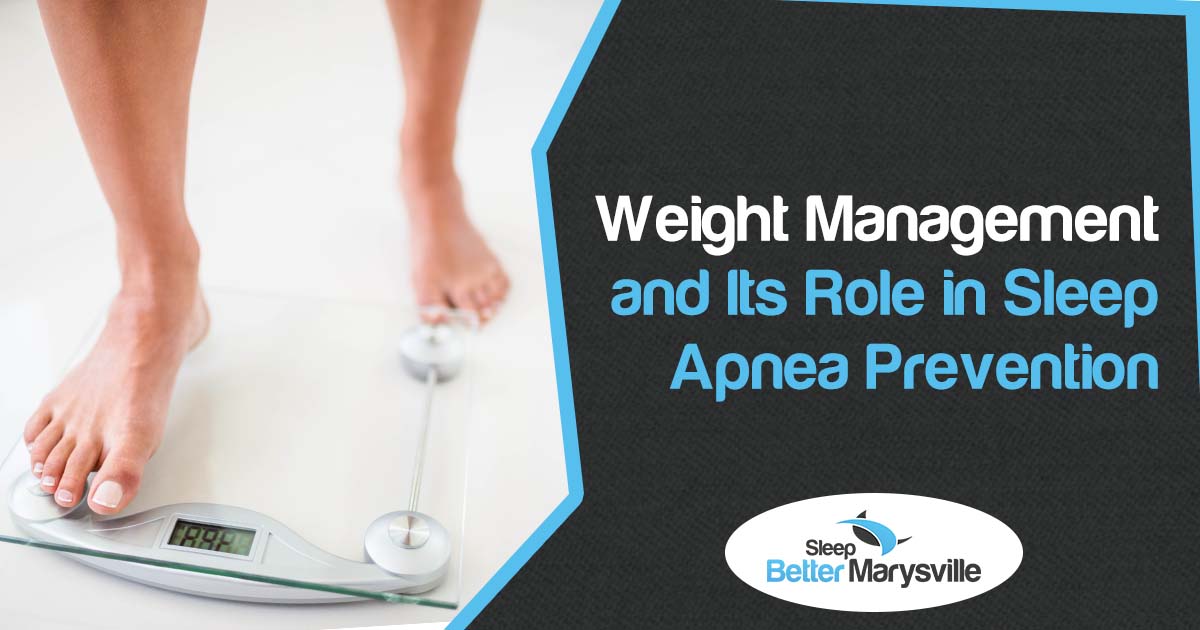The Link Between Weight Management and Sleep Apnea
Obesity is a leading risk factor for obstructive sleep apnea (OSA). Excess weight contributes to airway obstruction, making it harder for individuals to breathe correctly during sleep. Studies show that even a slight reduction in body weight can lead to noticeable improvements in sleep apnea symptoms.
How Excess Weight Affects the Airway
Excess fat around the neck and upper airway can pressure the throat, increasing the likelihood of airway collapse during sleep. This obstruction leads to repeated pauses in breathing, known as apneas, which disrupt sleep and reduce oxygen levels in the body.
The Role of Abdominal Fat in Sleep Apnea
Weight gain in the abdominal area can also contribute to sleep apnea. Excess fat in this region can pressure the diaphragm, making it more difficult for the lungs to expand fully. This can contribute to shallow breathing and increase the risk of airway obstruction at night.
Body Mass Index (BMI) and Sleep Apnea Risk
Individuals with a higher BMI are more likely to develop sleep apnea. Research indicates that weight gain of just 10% can increase the risk of developing moderate to severe sleep apnea by six times. Managing weight effectively can help reduce this risk and improve breathing during sleep.
How Weight Loss Can Reduce Sleep Apnea Symptoms
Weight loss plays a critical role in managing sleep apnea symptoms. Research indicates that losing even a small percentage of body weight can lead to noticeable improvements in breathing and sleep quality. Individuals who maintain a healthy weight often experience fewer apnea episodes, better oxygen levels, and reduced reliance on continuous positive airway pressure (CPAP) therapy.
Impact of Weight Loss on Airway Function
Excess weight, particularly around the neck and upper airway, contributes to airway narrowing and collapse during sleep. Losing weight can reduce this pressure, allowing for better airflow and fewer interruptions in breathing. Studies have shown that moderate weight loss can significantly decrease the severity of obstructive sleep apnea (OSA).
Reducing Dependence on CPAP Therapy
CPAP therapy is a standard treatment for sleep apnea, but some individuals may find it challenging to use it consistently. Weight loss can improve airway stability, potentially lowering the required CPAP pressure or, in some cases, eliminating the need for the device. However, individuals should consult a healthcare provider before changing their treatment plan.
Long-Term Benefits of Weight Management for Sleep Apnea
Sustaining a healthy weight over time helps prevent the recurrence of sleep apnea symptoms. Those who successfully manage their weight often report improved sleep quality, reduced daytime fatigue, and a lower risk of associated health conditions such as high blood pressure and heart disease.
Best Strategies for Weight Management for Sleep Apnea
Managing weight effectively requires a combination of healthy eating, regular exercise, and lifestyle changes. These strategies support weight loss, improve sleep quality, and reduce sleep apnea symptoms.
Balanced Nutrition for Better Sleep and Weight Control
Diet plays a crucial role in weight management for sleep apnea. Choosing nutrient-dense foods and maintaining a balanced diet can help regulate body weight and improve overall health.
- Focus on Whole Foods – Incorporating fruits, vegetables, lean proteins, and whole grains into daily meals can promote satiety and prevent overeating.
- Limit Processed Foods and Sugars – Foods high in refined carbohydrates and added sugars contribute to weight gain and inflammation, which may worsen sleep apnea symptoms.
- Increase Protein Intake – Lean protein sources, such as poultry, fish, and legumes, can help build muscle mass and support metabolism.
- Monitor Portion Sizes – Controlling portion sizes and avoiding late-night snacking can prevent excessive calorie intake and promote better digestion before sleep.
Exercise and Its Impact on Sleep Apnea Prevention
Regular physical activity is essential for weight management and improving respiratory function. Exercise helps strengthen muscles, including those in the upper airway, reducing the likelihood of airway collapse during sleep.
- Cardiovascular Exercise – Walking, cycling, and swimming improve heart health, boost metabolism, and aid in weight loss.
- Strength Training – Building muscle through resistance exercises increases metabolism and helps maintain weight loss over time.
- Targeted Breathing Exercises – Techniques such as oropharyngeal exercises (throat and tongue exercises) may improve airway control and reduce sleep apnea severity.
Lifestyle Modifications to Support Healthy Weight and Sleep
Making long-term lifestyle adjustments can enhance both weight loss efforts and sleep quality.
- Establish a Consistent Sleep Schedule – Going to bed and waking up simultaneously daily helps regulate the body’s internal clock and supports metabolism.
- Manage Stress Levels – Chronic stress can lead to overeating and weight gain. Relaxation techniques such as deep breathing, meditation, and yoga can help reduce stress.
- Limit Alcohol and Sedative Use – Alcohol and certain medications relax the throat muscles, increasing the risk of airway obstruction during sleep. Reducing consumption can improve sleep quality.
Medical and Professional Support for Weight Management
Medical and professional support can provide effective solutions for individuals struggling with weight loss and sleep apnea. Healthcare providers can offer personalized strategies, treatment options, and long-term guidance to help manage both conditions.
How Sleep Specialists and Dietitians Can Help
Consulting with a sleep specialist or registered dietitian can help individuals create a tailored weight management plan.
- Sleep Specialists – Assess sleep apnea severity and recommend appropriate treatments, including CPAP therapy and lifestyle modifications.
- Dietitians – Provide personalized nutrition guidance to support healthy weight loss and improve sleep quality.
- Behavioral Therapists – Help address emotional eating and develop sustainable lifestyle habits for long-term success.
Surgical and Non-Surgical Weight Loss Options
In some cases, traditional weight loss methods may not be enough to manage sleep apnea effectively. Medical interventions can help individuals achieve significant weight loss and reduce sleep apnea symptoms.
- Medication-Assisted Weight Loss – Prescription medications may be recommended to support weight management in individuals with obesity and sleep apnea.
- Bariatric Surgery – Procedures such as gastric bypass or sleeve gastrectomy can lead to substantial weight loss and, in many cases, improve or resolve sleep apnea.
- Oral Appliances and Other Treatments – Some individuals may benefit from oral appliances that reposition the jaw to keep the airway open during sleep.
The Importance of Long-Term Follow-Up and Accountability
Weight management for sleep apnea requires ongoing effort and monitoring. Regular check-ins with healthcare providers help ensure progress and prevent weight regain.
- Routine Sleep Evaluations – Periodic sleep studies can assess improvements in sleep apnea symptoms.
- Nutritional Counseling – Continued guidance from a dietitian can help individuals maintain healthy eating habits.
- Support Groups and Counseling – Connecting with others facing similar challenges can provide motivation and accountability.
Take Control of Your Health with Weight Management for Sleep Apnea
Managing weight effectively can play a crucial role in reducing sleep apnea symptoms and improving overall well-being. Individuals can take meaningful steps toward better sleep and long-term health by adopting a balanced diet, engaging in regular physical activity, and seeking professional guidance.
Professional support can make a significant difference for those struggling with sleep apnea and weight management. Sleep Better Marysville offers expert evaluations and personalized treatment plans to help individuals achieve better sleep and a healthier lifestyle.

